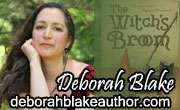
I've lately been contemplating the phrase the wordless truth. It's a phrase that shows up in the Dune series by Frank Herbert, but its goes much deeper than amazing Science Fiction (though Dune is a deep series). The wordless truth is the experiential embodiment of the work you do. It speaks through you, but not in words, rather through the experiences you have.
You can read something and think you understand it. But until you do the work and have experiences you don't know it. For instance I can read a book with practices and have a conceptual understanding of those practices. It's only when I do the actual practices that I open myself to the wordless truth conveyed by the experiential embodiment of those practices.
Experiential embodiment is the engagement of your senses, inner and outer, in the work. When you engage your senses in the spiritual work, you incorporate your body into the work and make it part of the experience that speaks the work through you. We often take our bodies for granted, yet I would argue that your body is the most potent resource you have available to you. It allows you to have experiences and enables you to embody them into the deepest level of your being.
The wordless truth is the experience speaking through you, embodied in your awareness and physicality. When you come back to the book and reread the book, it becomes a different book, that reveals deeper layers of meaning and experience that must actually be experienced to continue your journey with the work. The words take on new meanings and realizations because of the work you've done. But even so it is the work, the experience of the wordless truth that gives such meaning to the words.
The work speaks to us and through us and brings us into something larger, if we open ourselves to the experience. But we must open ourselves to the experience and allow it to embed itself in our sensory and bodily awareness, engaging all the senses, those directed outward, those directed inward, and those directed to the passage of time and the navigation of space.
When I do a working, it is not something separate from me. It is an intimate connection between myself and the universe, an exchange of ideas and experiences that creates a sacred moment where reality is shifted an possibilities are manifested. And of course this can be shared in words, but it isn't truly experienced until the person does the work.
Doing the work is taking on the experience and letting that experience speak to you and through you. It is the choice to embody the experience, to allow it to transform your relationship with yourself, the work, and with the universe. That can't be done through words alone, though words can play an important role in introducing you to the experience and upon being reread after the experience, unlocking deeper mysteries to be explored.
The wordless truth is found initially through words, but only experienced when you do the work, when you make the practice part of your life and allow it to work through you...then you'll know the wordless truth and carry it with you wherever you go.























